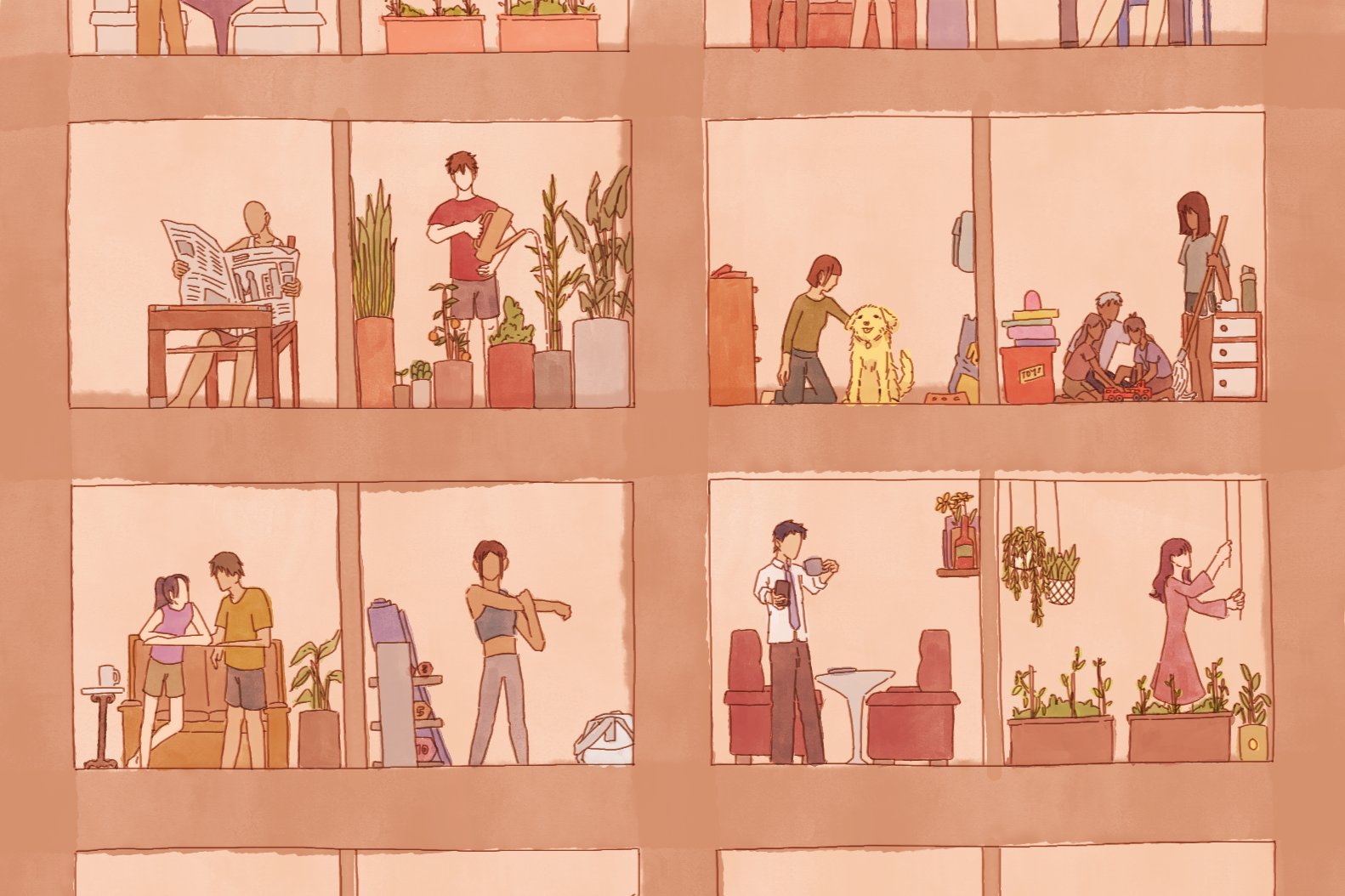“Where we lived, religion was served deep-fried and hard-boiled,” said Max Jeganathan, as he began his sharing with an excerpt from Delia Owens’ New York Times bestseller Where the Crawdads Sing.
The book depicts the life of a young girl living in 1960s North Carolina who was discriminated against for her socio-economic status by a woman who called herself a Christian.
“For me – as a Christian – that was probably the most cutting line of the entire novel.”
The Asia-Pacific Regional Director of Ravi Zacharias International Ministries was speaking at the COOS 3:16 Business Ecosystem Leadership Series, an equipping initiative by collaborative business marketplace alliance between Church of Our Saviour and 3:16 Church.
A prolific apologist, Jeganathan had been invited to tackle the topic of hope and dignity in light of much of the unrest around the world today, whether caused by racial tensions, geopolitical instability, the pandemic, economic uncertainty or social disadvantage.
“One thing is undeniable when we look across our world…We have built a world with systems, structures and institutions that are leaving some people behind,” he said over the Zoom call with more than 50 participants.
As Christians, how then can we live out the teachings of Jesus and be true to the message of Christianity?
UNDERSTAND MORAL RESPONSIBILITY
“A threat to justice anywhere is a threat to justice everywhere.”
– Martin Luther King
Jeganathan cautioned the audience not to disregard or trivialise the issue of injustice just because they do not personally experience or witness it.
Instead, he advised Christians to “(tune) in to not just what they are going through, but what others in their communities are going through.”

“Violations of dignity are ubiquitous. It is easy to ignore them when we are not affected by them. But as Christians, we are called to a higher standard of moral responsibility and moral action.”
Jeganathan then emphasised that moral agency is a collective responsibility, and it calls on us to act. In essence, we are our brothers’ and sisters’ keepers.
“We all contribute to the system in which we live, simply by being a part of it. We are all responsible for the moral outcomes of the systems of which we are a part.”
Collective moral responsibility is entirely biblical. We read about God’s people taking responsibility for their families, their communities and even for what their ancestors did (Leviticus 26:40).
And there are many ways we can respond to issues of injustice, whether it is praying for those affected or asking for forgiveness for any culpability, speaking out, giving financially or of our time, advocating, reading or perhaps above all, listening.
AVOID LOGICAL LAZINESS
He encouraged his audience with three simple ways to avoid errors of logic, in both understanding and discussing these difficult issues with friends, family and colleagues.
Jeganathan explained that we don’t need to pit consistent ideals up against each other. “A statement that my life matters does not detract from a belief that your life matters too.”
Secondly, he went on to explain the law of the undistributed middle.
“Just because two things have something in common, it doesn’t mean they have everything in common. There is no need to be afraid that just because we agree with someone on one issue, we have to agree with them on all issues,” said Jeganathan, in reference to movements that have grown to include much broader political agendas.
“Thirdly, we can be sophisticated enough to separate an ideal from how some people seek to actualise that ideal,” said Jeganathan. “Just because I agree with someone on an issue, it doesn’t mean I have to agree with how they go about campaigning on that issue.”
COMMUNICATE HEALING AND HOPE
Jeganathan then talked about the ultimate call of the Christian in a world mired in increasing uncertainty and unpredictability – to bring the healing and hope of the Christian message to issues like this.
“This is where the Christian message really comes to life in a beautiful way. Because when we look at the message of Jesus, there is one very powerful doctrine on which all of human dignity actually rests. It is the doctrine of the imago dei,” Jeganathan said, in reference to the image of God.
Worldly things can provide us with “synthetic dignity” and cause us to feel good about ourselves, but intrinsic dignity comes only from the fact that we are all made in God’s image.
Every other worldview is on some level about what we do, feel, think or say. The Christian worldview is primarily about who we are – God’s children.
When asked about cultural influences on the definition of dignity, Jeganathan replied: “Part of the challenge is actually communicating that we (Christians) do have an objective basis for human dignity.
“No matter what you believe or where you are from, according to the Christian message everyone is made in the image of God. It’s not just good news for Christians, it’s good news for everyone.”

According to the Christian message, all people are called to be in loving relationship with God and with people, but discrimination violates both of these purposes.
“We are violating the image of God in them, which is vertical, and we are violating our call to love them and to treat them as equals, which is horizontal,” Jeganathan elaborated.
BEHAVE LIKE JESUS
“The most important thing that Jesus did was that He involved himself in the suffering of others,” he said, pointing out that the word ‘Christian’ actually means ‘little Christ.’
As Christians, we are called to act like Jesus. We are called to involve ourselves in the suffering of others using the love of God and the prompting of God Himself through His Holy Spirit.
And it is not just about praying, but also helping to alleviate suffering.

The idea is not to just read the Bible, but also read the world through the Bible.
He said: “If we are going to involve ourselves in the suffering of the people around us, then we need to be aware of that suffering.”
Lastly, he exhorted his audience to “learn to disagree without being disagreeable”, to reflect the fruit of the Spirit in our tone and in our heart, and to remember the person of Jesus and how He treated people.
There is nothing wrong with disagreeing with people, but it is the way we disagree that reveals Who we belong to. After all, winning debates and making points is never talked about anywhere in the Bible as being important.
“Only then can we reflect the kind of Christian love that the Bible actually talks about,” Jeganathan concluded.
“Not a deep-fried, hard-boiled love as Delia Owens writes about, but an outward-looking, kind, empathising love that communicates both emotionally, intellectually and practically the message of healing and hope that can only come through the Person of Jesus.”
The COOS-3:16 Business Ecosystem by Church of Our Saviour and 3:16 Church aims to encourage networking and collaboration among church members by sharing perspectives on how business can propel God’s glory.
- How can we better read the world through the Bible and process issues through a faith lens?
- How can we disagree without being disagreeable when responding to issues around us?
- How can you communicate healing and hope within your sphere of influence?









